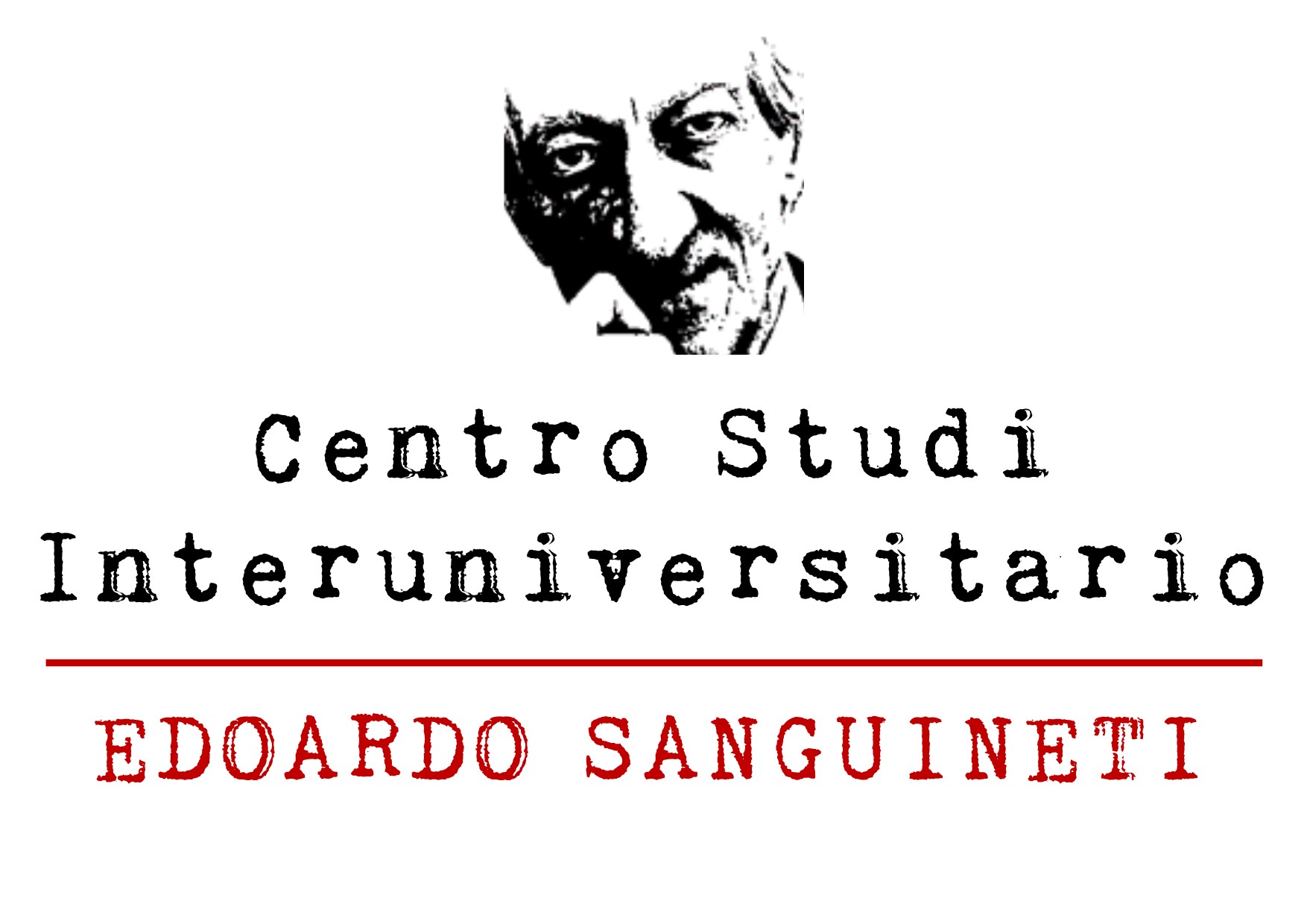Within the Italian cultural landscape, Sanguineti stans as a near-unique figurefor his ability to navigate across poetry and literary criticism, as well as art, music and cinema criticism, fiction, novel, translation, prose theatre and musical librettos, artist's books, and editorial work. This intermediality gives his body of work a drive toward totality, generating lasting connections - from the late 1940s to the 2000s - with artists and intellectuals around the world. This is clearly reflected in the early translation of his works into German and French. The series – featuring unpublished or scattered authorial materials and critical essays – aims to explore key issues in 20th-century culture, offering not only a retrospective reflection on Sanguineti's experience but also a forward-looking proposition: what endures comes to light.
The editorial series is published by Edizioni dell'Orso, based in Alessandria.
Editorial Board
Clara Allasia (University of Turin)
Paolo Giovannetti (University IULM, Milan)
Erminio Risso (University of Turin)
Enrico Testa (University of Genoa)
Federico Sanguineti (University of Salerno) †
Scientific Committee
Alberto Cadioli (University of Milan-La Statale)
Fausto Curi (University of Bologna)
Rosa Giulio (University of Salerno)
Giovanna Frosini (University Stranieri di Siena)
Andrea Liberovici (Artist in residence, Columbia University, NYC)
Claudio Longhi (University of Bologna)
Niva Lorenzini (University of Bologna)
Tommaso Pomilio (Sapienza University of Rome)
Lorenzo Resio (University of Turin)
Francesca Sanguineti (University of Naples Federico II)
Chiara Tavella (University of Turin)
Enrico Testa (University of Genoa)
Editorial team
Virginia Criscenti (University of Turin)
Calogero Giorgio Priolo (University of Turin)
The books published in the editorial series undergo a peer review process that ensures their scientific and scholarly validity.
The volume offers a “garden of verbal zoology,” constructed alongside the many imagined by Edoardo Sanguineti, this perhaps being the only one he had not conceived himself. It draws on his vast lexicographic archive, reaffirming his conviction that “the word must strive to explore all the possibilities of language and make use of every experience from the past.” Starting from materials preserved at the Interuniversitary Research Centre Edoardo Sanguineti in Turin, the book develops an intermedial journey through lexicographic cards and unpublished or scattered writings. It offers a reflection on the relationship between the artistic work (from poetry to melodramma, from theatre to radio and cinema) and the depths of human experience, adknowledging how, in Sanguineti’s discourse, the unconscious and language may come together.
Book launch
- Aprile 28, 2023 - Turin, Circolo dei Lettori, with Giorgio Ficara, Franco Poli and Federico Vercellone
Review
- Virginia Criscenti, «Sinestesieonline», XII, 39, May 2023 (clik here to read the review).
In 1971, Edoardo Sanguineti spent just over six months living in Berlin, a city where he wrote a series of poems in 'real time', handing the typescript over to his poet friend Gerald Bisinger so it could be immediately translated into German. These were images of a journey, a deliberate nod to Heine’s Reisebilder. The collection offers is a set of glances not only on the individual poet writing them from an entire circle of intellectuals - from Ezensberger to Breytenbach - forming a kind of ‘Comune’ where artistic labor and hopes for change meet, not for the poets themselves but for the people, paraphrasing one of Sanguineti's titles. As it previously occurred in Paris in 1969, Sanguineti was one of the four poet-friends engaged in a collective writing experiment: in Paris, this had resulted in Renga; in Berlin Made in Holland was born, a new renga (published only in Afrikaans, which the original unpublished manuscript reproduced here, courtesy of its owner Amichai). Its creation was promped by the Poetry International in Rotterdam, the festival that served as the prologue to Sanguineti’s Berlin stay. In this city, - his feet firmly planted in German culture, from Goethe to Marx to Brecht - Sanguineti looked upon and engaged with global events and culture. The verses of Reisebilder speak to the depths of the human experience because they unflinchingly confront the crisis of reality, to the East as well as to the West, traversed and worn by a silent, low-intensity conflict. As it peak, this struggle pits the alienating spectacle of consumer goods against an equally alienating, stagnant bureaucratic society. Sanguineti would return to Berlin multiple times in the years that followed. In his poetry, the city becomes a space for recording different the shifting stages of globalization, from the 1980s and 1990s into the new millennium. This essay seeks to uncover and interpret what Sanguineti so clearly reveals: the complexity of the human being and his constant struggle to reclaim all that is human: «io te lo racconto adesso / che l’ho capito, appena, subito: (e puoi capirmi): questo è il mio corpo:» Edoardo Sanguineti, Reisebilder 45.
Quest’opera di Sanguineti ci viene restituita grazie alla convergenza di due esperienze di studio inizialmente autonome e divise, una concentrata sui materiali preparatori presenti al Centro Studi Interuniversitario Edoardo Sanguineti e l’altra sui copioni degli spettacoli. La scelta dei curatori ha permesso di dar vita a un libro che mostra integralmente le fasi dell’organizzazione della scrittura per la scena e, in filigrana, le problematiche del rapporto non sporadico con Shakespeare. È proprio questa particolare costruzione che permette al lettore di entrare nel laboratorio di composizione di Sanguineti e nei meccanismi della collaborazione con Liberovici, del quale accoglie sollecitazioni e necessità, anche strettamente teatrali. Proprio mentre leggiamo, la ricca parola di Sanguineti ci porta al cuore dell’espressione di Shakespeare, mettendoci in condizione di ascoltare, attraverso giochi di pensieri e rumori, la voce di Judith Malina e la musica di Andrea Liberovici. Se il lavoro critico permette al lettore di orientarsi in una serie di complesse dinamiche testuali, alcuni QR Code consentono di rivivere parti dell’opera sulla scena.
 Centro Studi Interuniversitario Edoardo Sanguineti
Centro Studi Interuniversitario Edoardo Sanguineti


